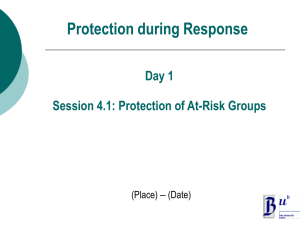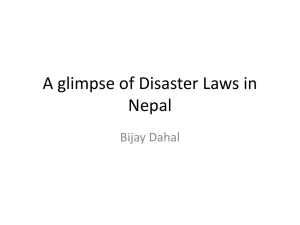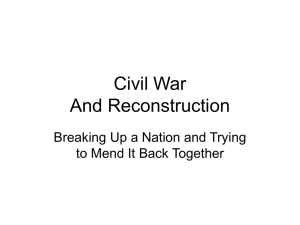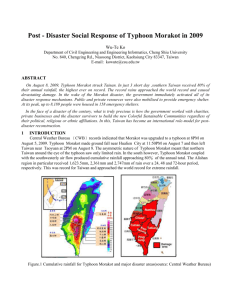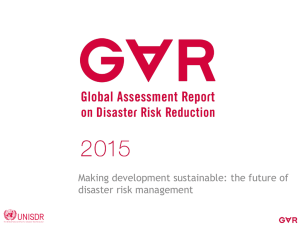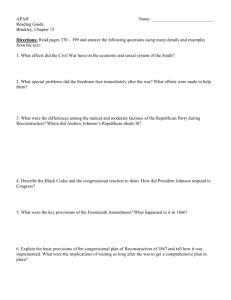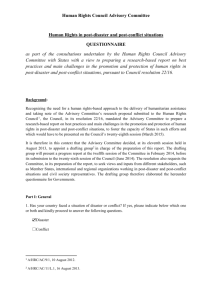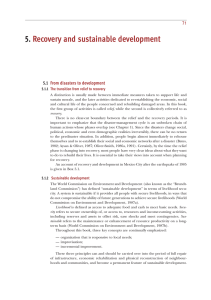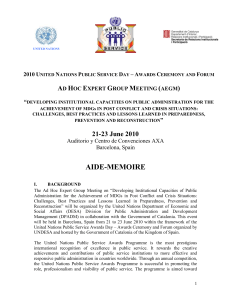Prof. Jenn-Chaun Chern to give a guest lecture at ICCA, University
advertisement
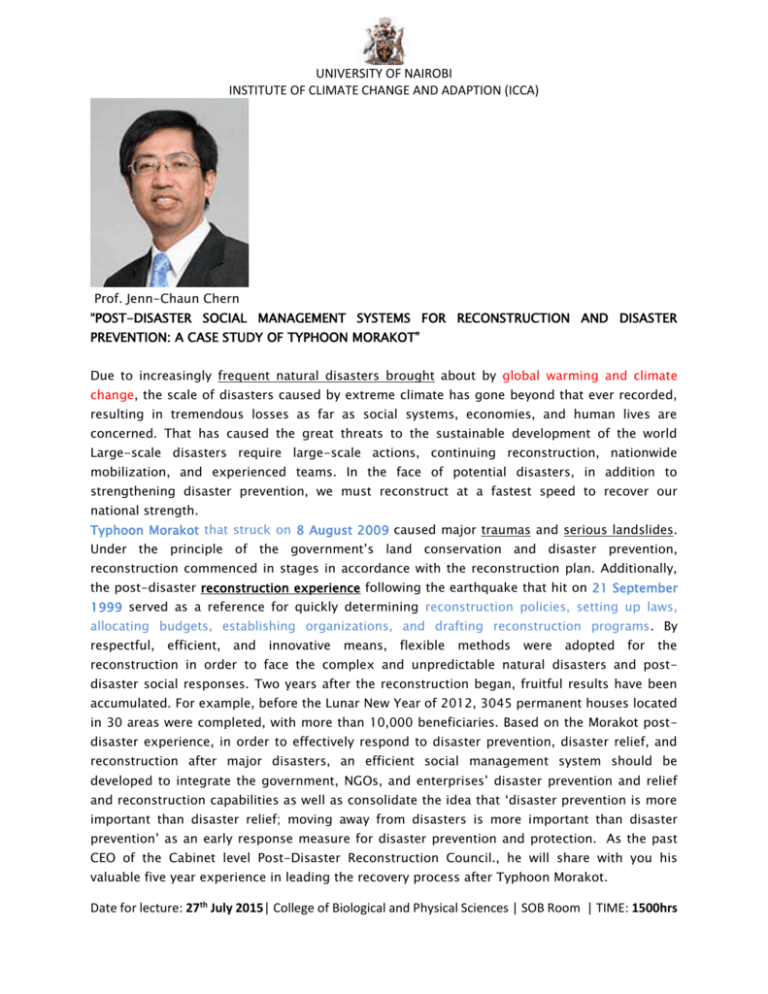
UNIVERSITY OF NAIROBI INSTITUTE OF CLIMATE CHANGE AND ADAPTION (ICCA) Prof. Jenn-Chaun Chern “POST-DISASTER SOCIAL MANAGEMENT SYSTEMS FOR RECONSTRUCTION AND DISASTER PREVENTION: A CASE STUDY OF TYPHOON MORAKOT” Due to increasingly frequent natural disasters brought about by global warming and climate change, the scale of disasters caused by extreme climate has gone beyond that ever recorded, resulting in tremendous losses as far as social systems, economies, and human lives are concerned. That has caused the great threats to the sustainable development of the world Large-scale disasters require large-scale actions, continuing reconstruction, nationwide mobilization, and experienced teams. In the face of potential disasters, in addition to strengthening disaster prevention, we must reconstruct at a fastest speed to recover our national strength. Typhoon Morakot that struck on 8 August 2009 caused major traumas and serious landslides. Under the principle of the government’s land conservation and disaster prevention, reconstruction commenced in stages in accordance with the reconstruction plan. Additionally, the post-disaster reconstruction experience following the earthquake that hit on 21 September 1999 served as a reference for quickly determining reconstruction policies, setting up laws, allocating budgets, establishing organizations, and drafting reconstruction programs. By respectful, efficient, and innovative means, flexible methods were adopted for the reconstruction in order to face the complex and unpredictable natural disasters and postdisaster social responses. Two years after the reconstruction began, fruitful results have been accumulated. For example, before the Lunar New Year of 2012, 3045 permanent houses located in 30 areas were completed, with more than 10,000 beneficiaries. Based on the Morakot postdisaster experience, in order to effectively respond to disaster prevention, disaster relief, and reconstruction after major disasters, an efficient social management system should be developed to integrate the government, NGOs, and enterprises’ disaster prevention and relief and reconstruction capabilities as well as consolidate the idea that ‘disaster prevention is more important than disaster relief; moving away from disasters is more important than disaster prevention’ as an early response measure for disaster prevention and protection. As the past CEO of the Cabinet level Post-Disaster Reconstruction Council., he will share with you his valuable five year experience in leading the recovery process after Typhoon Morakot. Date for lecture: 27th July 2015| College of Biological and Physical Sciences | SOB Room | TIME: 1500hrs
